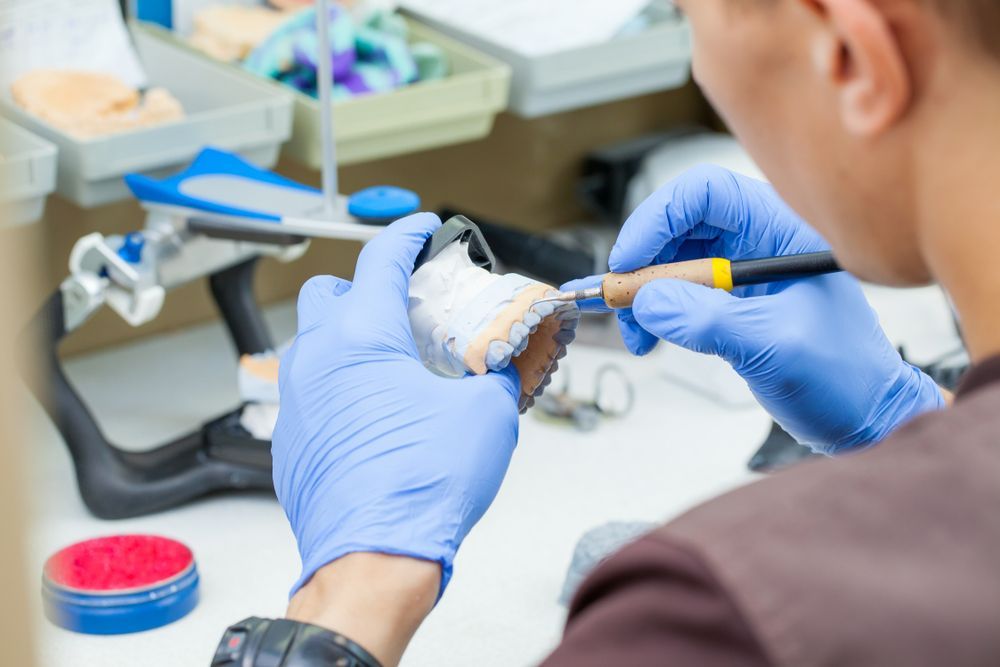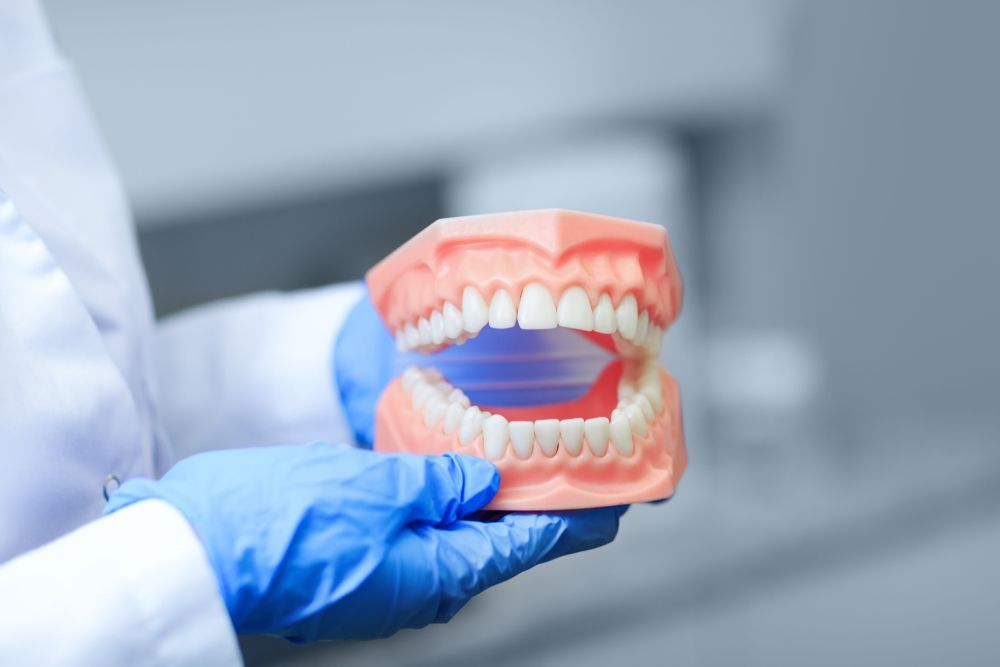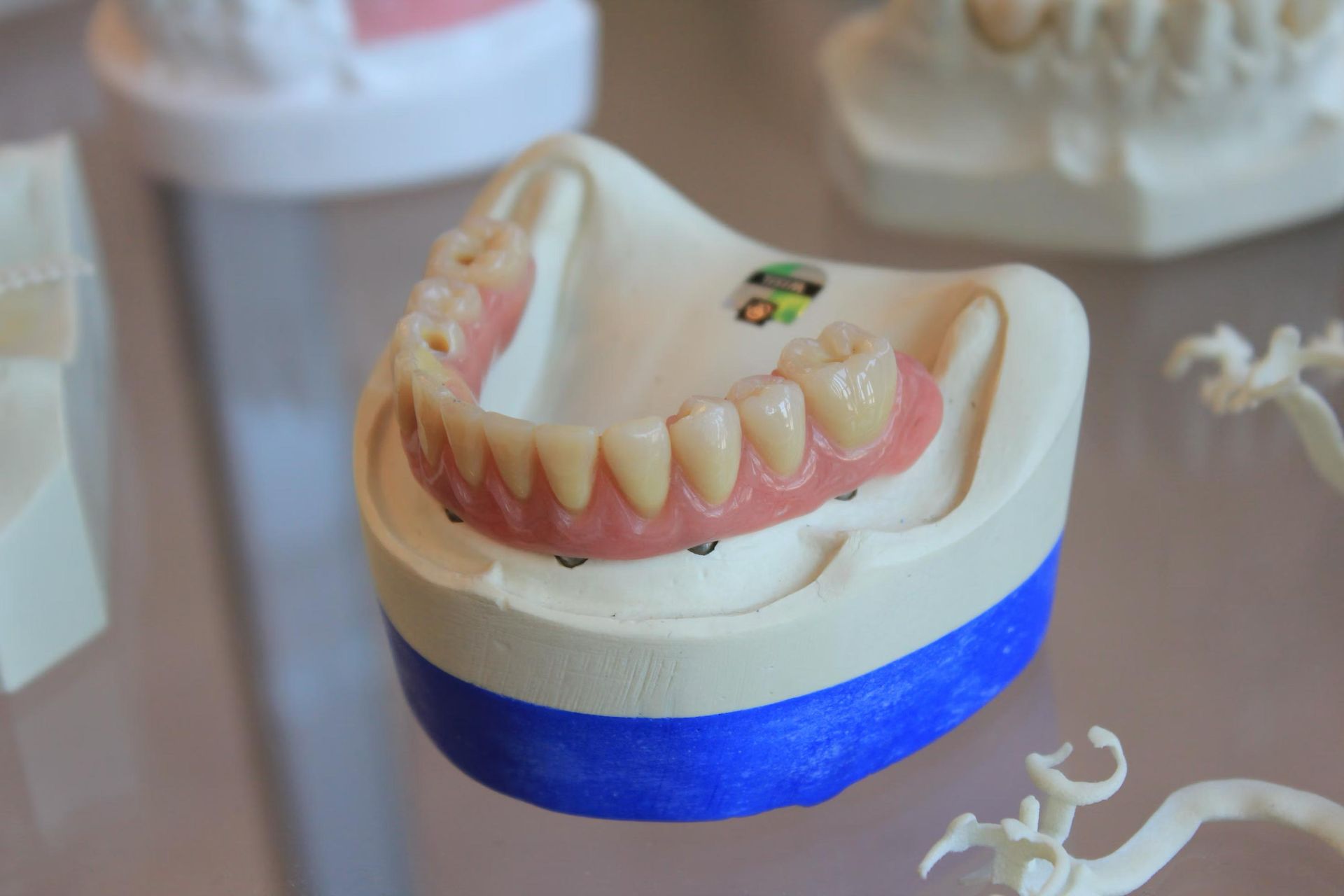How to Tell When It's Time to Replace Your Dentures
Dentures are designed to restore comfort, function, and confidence, but they do not last forever. Over time, everyday wear and natural changes in the shape of your mouth can cause them to lose their fit and effectiveness. This shift often happens gradually, making it hard to notice at first. That’s why being aware of the common signs that denture replacement may be needed is so important.
What begins as a minor inconvenience — a little movement when eating, a small sore spot, or food feeling harder to chew — can build into ongoing problems that affect both comfort and quality of life. Because dentures play such an important role in speaking, eating, and supporting facial structure, recognising when they are no longer working properly is essential.
Being aware of the signs that replacement may be needed allows you to address issues early, before they become more disruptive. It’s not just about restoring function; it’s about maintaining confidence in daily activities and ensuring your dentures continue to support your wellbeing.
Everyday Discomfort Shouldn't Be Your New Normal
Persistent pain, sore spots, or irritation are often the first signals that dentures are no longer fitting as intended. While occasional discomfort can happen when dentures are new, ongoing issues are a strong indicator of change. Living with daily discomfort is not necessary when solutions are available, as a denture clinic can assess fit and recommend the right course of action.
- Sore spots that appear regularly under the denture base
- Gum irritation that does not improve with adjustments
- A general feeling of pressure or tightness
When Chewing Becomes a Challenge
One of the main purposes of dentures is to make eating easier and more enjoyable. If you begin to avoid certain foods or notice chewing takes more effort, it may be time to consider new dentures. What often starts as small changes, like cutting meals into smaller pieces, avoiding chewy or crunchy foods, or relying on softer options, can gradually turn into noticeable limitations.
Over time, the denture base and teeth wear down, reducing bite strength and stability. This not only affects comfort but can also make meals less satisfying. Some people find themselves skipping certain foods altogether, which may impact variety in their diet.
A replacement can restore chewing function, making it easier to enjoy a wider range of meals again. Being able to eat with confidence is more than a convenience; it supports nutrition, social connection, and overall quality of life.
Cracks, Chips, and Obvious Wear on Your Dentures
Just like natural teeth, dentures are exposed to pressure and daily wear. Cracks, chips, or sharp edges may not only affect how they look but also compromise their strength.
- Visible fractures in the acrylic base
- Teeth that appear worn down or flattened
- Rough edges that irritate the tongue or cheeks
Even small cracks can expand over time, increasing the risk of breakage. Replacing damaged dentures prevents sudden accidents and helps maintain reliable function in your daily routine.
Changes in Your Facial Appearance Over Time
Dentures do more than replace missing teeth — they also support the natural shape of your face. If you notice changes in your appearance, this may be linked to dentures that no longer provide proper support. Sagging in the cheeks, a sunken look around the mouth, or new lines developing near the lips can all be subtle but important clues. These changes often happen gradually, making them easy to overlook until they become more noticeable. Updating your dentures through timely denture replacement can restore support for facial muscles, helping you feel more like yourself again.
Loose Dentures That Slip When You Talk
Speaking with confidence is an important part of daily life. If your dentures slip out of place when you talk, laugh, or smile, it can be both uncomfortable and distracting.
- Mumbling or slurred speech from unstable dentures
- Frequent repositioning with your tongue
- Worry about dentures moving in social situations
A replacement can create a more secure fit, reducing movement and improving clarity. This helps you focus on conversations instead of constantly adjusting your dentures.
Mouth Sores and Infections That Won't Go Away
Ill-fitting dentures can cause more than discomfort. They may also contribute to recurring sores, swelling, or even fungal infections if they are not replaced. Pressure spots that turn into ulcers, persistent redness, or symptoms of oral thrush are signs that the dentures are no longer supporting your health. These ongoing problems are more than an inconvenience. They make eating, speaking, and even smiling uncomfortable, and over time can reduce confidence in everyday activities. A properly fitted replacement helps ease irritation and supports a healthier environment in your mouth.
Bad Breath or Lingering Taste Issues
Hygiene plays a large role in denture care, but sometimes even with good cleaning habits, odours remain. This is often because older dentures develop microscopic pores that trap bacteria.
- Noticeable bad breath that brushing does not improve
- Unpleasant taste that lingers during the day
- Difficulty keeping dentures feeling fresh after cleaning
Replacing old dentures can help restore a clean, healthy feel while giving you more confidence in everyday interactions.
Regular Check-Ups Reveal It's Time
Sometimes, the clearest sign comes from a professional assessment. Routine visits to a denture clinic provide an opportunity for early detection of wear and tear, even before problems become obvious. During these visits, your dentures can be checked for how well they support your bite, whether your gums have changed shape, and if a replacement is recommended. Regular check-ups are the safest way to know whether your dentures are still working as they should. An expert can guide you on whether adjustments, relines, or a new set is the right step forward.
We at The Peaks Denture Clinics are here to help you recognise the right time to replace your dentures. If you’re experiencing discomfort, changes in function, or simply want peace of mind, our team can provide a thorough assessment at our Denture Clinic Katoomba. Local residents often face unique challenges with oral health due to natural changes in lifestyle and ageing, and we’re here to support you through each stage.
Visit us at https://www.thepeaksdentureclinics.com.au/ to
book your appointment and take the first step towards restoring comfort and confidence.








